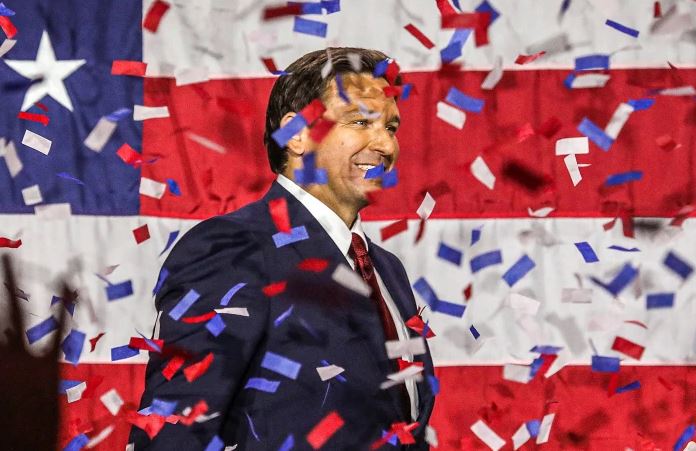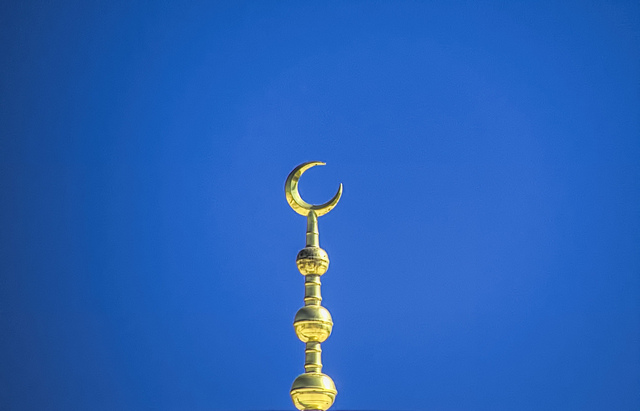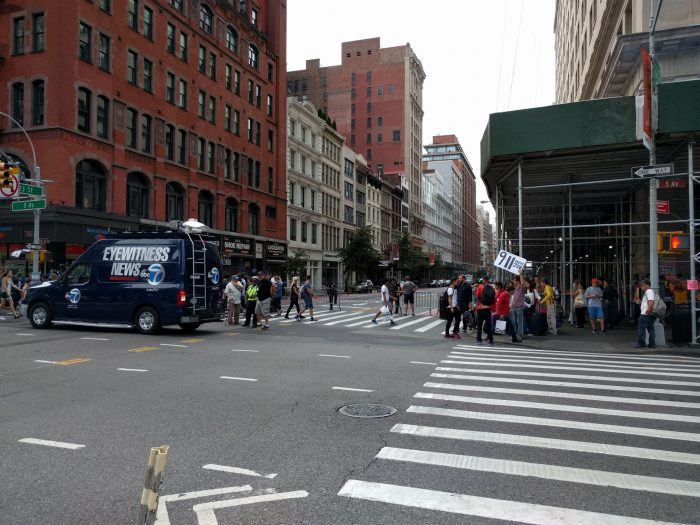Yesterday was bad for Democrats. They won, or, at least, they didn’t lose as badly as expected (results still too close to call), probably maintaining control of the Senate and losing the House by far fewer seats than expected. This is a victory, to be sure, but it’s a pyrrhic victory, setting the stage for a 2024 decimation of the Democratic Party at both the executive and legislative levels.
By all accounts, the Democrats should have seen a resounding defeat yesterday. Off-year election cycles routinely deliver bad results to the governing party, and the most important indicators – crime, the economy, etc. – favored an opposition party over a governing party. Combine that with a president who’s quite obviously non compos mentis, and the expected result is, as George W. Bush once described it, “a thumpin’.” But that didn’t happen, so the obvious question is: Why?
Why were the Democrats able to defy the odds and pull off what amounts to a victory? Only two real options are available: the Democrats did just about everything right, or the Republicans did just about everything wrong. If Democrats are being honest with themselves, it should be obvious to them that the electorate voted against the Republicans, not for the Democrats. If there was widespread content with the Democrats, the polls don’t show it. They don’t show it in the presidential approval rating or in confidence in Democrats’ ability to handle key issues like crime and inflation; the Democrats don’t even fully dominate the area they’ve tried to make their key issue: protecting democracy (though, to be sure, this is an area where they beat the Republicans).
Throughout the race, the Democrats broadcast their lack of faith in their standing with the voters. While Biden was making speeches arguing MAGA Republicans are a threat to democracy, other members of his party were openly funding the most extreme of these threats, to the tune of tens of millions of dollars. A cynical move, ostensibly fighting for democracy while funding democracy’s supposed gravediggers, but it worked. With a few exceptions, almost all of the Trump-favored extremists, including those the Democrats helped to beat out over their moderate, regular Republican, challengers, lost. But therein lies the problem for the future.
Victory leads to complacency, while defeat leads to soul searching, as was the case in 2020, when Democrats like Abigail Spannberger forcefully questioned the “defund the police” slogan with which the Democratic Party had become too comfortable. Recall that 2020 was a defeat for Democrats in the same way that 2022 is a victory: while this time they didn’t lose by as much as they would have been expected to, two years ago they didn’t win by nearly as much as they should have. Indeed, the only reason they won a “majority” (really, 50-50 plus the vice president’s tie-breaking vote) of the Senate was because Trump went to Georgia and convinced Republicans their votes didn’t matter, because the election was “rigged” and “stolen.”
Now, the election results have made the Democrats complacent, while the Republicans search their souls, along with their strategic playbook. While many have been arguing that Trump is an albatross around the Republicans’ collective neck, yesterday made it clear that he’s not an albatross, but a noose. The candidates Trump picked lost yesterday, but in places where the former president didn’t interfere, Republicans fared much better. Georgia’s Democratic Sen. Raphael Warnock is locked in a dead heat with Republican Herschel Walker, an unhinged figure who was endorsed by Trump. Walker could win, but Democrats only need to look elsewhere in Georgia to see something that should terrify them: Brian Kemp, a conservative Republican who Trump declared an enemy, destroyed Democratic superstar Stacey Abrams in the race for governor, 54-46, despite few problems and high turnout.
One could look also at New York’s 17th Congressional district. There, Sean Patrick Maloney was defeated by Republican state legislator Mike Lawler. Lawler, despite having been a Trump delegate to the RNC in previous times, sought to distance himself from Trump and focused his campaign on crime and inflation. Lawler’s website, especially its foreign policy section, shows a candidate at pains to paint himself as a strongly conservative – not an America Firster. And Maloney should have won easily: there was some redistricting, but Biden won the general area of the district by 10 points – and Maloney is chair of the Democratic Congressional Campaign Committee, the organization that’s responsible for raising and doling out money to the party’s Congressional candidates. No DCCC member has lost in four decades.
Other examples abound, but the most important is in Florida. Gov. Ron DeSantis handily beat Democrat Charlie Crist. Trump has been strongly, and publicly, signaling that he hates DeSantis, holding a rally at the same time as the Florida governor and warning DeSantis not to run for president because, “I know more about him than anybody — other than, perhaps, his wife.” Were DeSantis to run, Trump said, the Florida governor “could hurt himself very badly.”
So far, DeSantis hasn’t hurt himself at all. He’s been able to build a huge base of support in Florida, straddling the lines between competent administrator (If he runs for president, he’s sure to point to his handling of the pandemic, as compared to the disgraced former New York Gov. Andrew Cuomo, responsible for the state’s nursing home scandal), conservative, and Trump-style troll (as evinced in his apery of Texas Gov. Greg Abbott’s transport of undocumented immigrants to blue states).
Coming days will reveal more information about how Black, Hispanic, and Asian voters cast their ballots, but they are clearly shifting Republican – and DeSantis has made huge headway with, at least, Hispanic voters in his state, beating Biden’s share of that demographic’s vote in 2020. While commentators then pointed to Cubans and Venezuelans fearing the stated socialism of AOC, Sanders, and their bloc, the same explanation doesn’t hold now. DeSantis won 50 percent of all Hispanic voters in Florida, and a whopping 55 percent of Puerto Rican voters in the state.
The Florida governor is clearly the rising star in the Republican Party, and, if that dynamic isn’t halted, it likely means an eclipse for the Democrats. DeSantis might actually be able to purge the GOP of Trump’s influence, or at least to wrest control from him. That, combined with the quite obvious rebuke of Trumpism by the voters, can expunge MAGA and rob the Democrats of their key talking point in 2022. In 2024, they’ll have to focus on their record and the state of the country, and economists are still predicting a recession.
And if DeSantis becomes the Republican nominee, Biden would not stand a chance. Biden won in 2020 by promising not to be Trump. While Biden and the Democrats didn’t seem to get the message, it was pretty clear: voters wanted simply a return to normalcy, to pre-Trump politics. They didn’t want a lurch to the left or to the right; they wanted to make America normal again. Biden hasn’t done that; everyone who’s honest admits that there’s something terribly amiss in the Biden administration’s handling of almost everything, and the president isn’t even able to hold his own against friendly interviewers. How will he perform against DeSantis who will, after winning the primary and hew moderate? DeSantis is a fairly skilled orator, full of facts and figures, easily able to defeat Biden in a debate.
Each party has work to do. For Republicans, the steps forward are clear: expunge Trump’s influence. For Democrats, the work is clear, but both the problem and the necessary steps forward are obscured by the fog of victory. Recent Democratic statements seem to indicate that Biden and his inner circle, as well as many legislative Democrats, believe that there has been a vindication of their policies, encouraging them to simply keep doing what they’ve done for the past two years. That, though, is a path to electoral disaster. As for the actual steps the Democrats should take moving forward, George Will has some decent suggestions.
If Trump is gone, a winning strategy will no longer consist of not being Trump.





